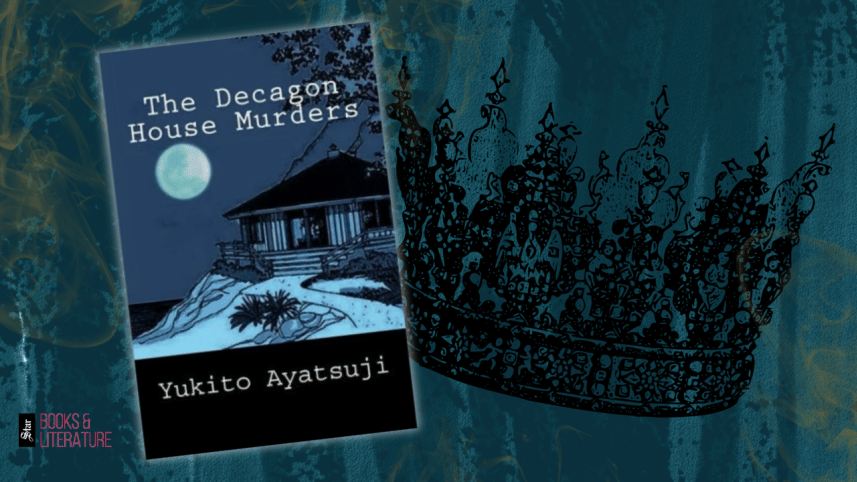Let the queen rest in peace

No, we are not talking about Queen Elizabeth II, who broke many longevity records and reigned for over 70 years. We allude instead to another English queen—one who broke literary records and continues to reign supreme among mystery lovers worldwide. She remains an enigma, the most translated individual author according to UNESCO. But we'll come to that later.
Why read mysteries? True fans will always passionately reject the notion that mysteries or thrillers are the poorer cousins of "real" fiction or literature—whatever that means. The truth is this: opening a fresh mystery novel feels like stepping into a shadowed room where the air thrums with suspense. A little shiver of delight runs down the spine, each page promising secret passageways, false leads, and the perfect right-wrongness of a good puzzle.
Do you remember your first mystery? I do. I was 13, bored during a school break, and happened upon my mother's battered copy of Agatha Christie's Murder at the Vicarage (1930). I devoured it in secret during the sweltering Dhaka summer, trying to imagine what a snowy winter in an old-fashioned English village might look like. And what makes a good mystery? When it's truly juicy, there's a pleasurable aftertaste—"Ah! Didn't see that coming!"—the kind of twist that lingers, making the real world temporarily duller by comparison. These delicious surprises are why so many have spent nights sprawled in lamplight, palms damp and hearts thumping with anticipation, occasionally closing the book just to pause and marvel in amazement.
You might ask at this point: which book is this review about? Yukito Ayatsuji's debut novel The Decagon House Murders was first published in Japan in 1978 and translated into English in 2020. Sometimes imitation can be flattering, and Christie has had more than her fair share of imitators hoping to profit from a winning formula. But when a bestselling Japanese novel promises tribute and delivers pantomime instead, my sense of betrayal becomes real. The sting comes not from a failed twist, but from the feeling of being lured by Christie's appeal only to find an empty shell.
At first glance, the setup in The Decagon House Murders is thrilling—a retelling of Agatha Christie's And Then There Were None (1939), one of the bestselling books of all time (go look it up!). A chilling island is soon inhabited by a group of university students—all members of a literary club, experts in English detective fiction, and addressing each other by code names borrowed from mystery authors. I was hoping for palpable emotion, a vivid sense of time and place, and characters as real as the people you might run into in life—or at least relate to. In The Decagon House Murders, the scenery is serviceable—a modernist mansion on a windswept Japanese island built by an eccentric architect—but the tenants are cardboard, their stories faded and improbable. The thrill curdles as the reading becomes a slog of earnest discussions and internal monologues. Even with a willing suspension of disbelief, the denouement stumbles into absurdity. Without giving details away (in case some stoic reader gives it a try), the finale robs the reader of that quintessential "A-ha!" Instead, there's only "Wait, what?!" It's the stale taste of disappointment, the kind that can make one contemplate breaking up with the genre altogether. Or at least, not trying new mystery authors for a while.
Reading this book reminded me why I avoid fanfiction on principle. It called to mind the abundance of online scraps where guileless aficionados craft "The Mystery of Poirot's Train Ride" and "Miss Marple and the Vicarage Cat." I find it baffling that YouTube is rife with the "fall asleep with this mystery" category. Murder as a lullaby? Really? Cosy mysteries, far from delivering thrills, have apparently become the literary equivalent of herbal tea.
Still, there are quality homages that succeed. Anthony Horowitz's Magpie Murders winks at Christie, then deftly pirouettes into new territory. Sophie Hannah's Poirot novels tiptoe with both reverence and invention. Richard Osman's Thursday Murder Club (Penguin Books, 2020) series offers a taste of what might happen if Miss Marple lived in a retirement home. These keep readers' pulses racing, minds guessing, and—most importantly—hearts invested for the next book in the series.
Ruhana Hafiz lives in Virginia, USA and is a strategy and program leadership expert with 20 years of experience in the private sector (Unilever, Nestle, Clorox) and the public sector (Federal Bureau of Investigation, Directorate of National Intelligence). She has lived and worked on three continents, speaks multiple languages, and is passionate about bringing people together with great food, books, and boundary-pushing conversations.



 For all latest news, follow The Daily Star's Google News channel.
For all latest news, follow The Daily Star's Google News channel.
Comments